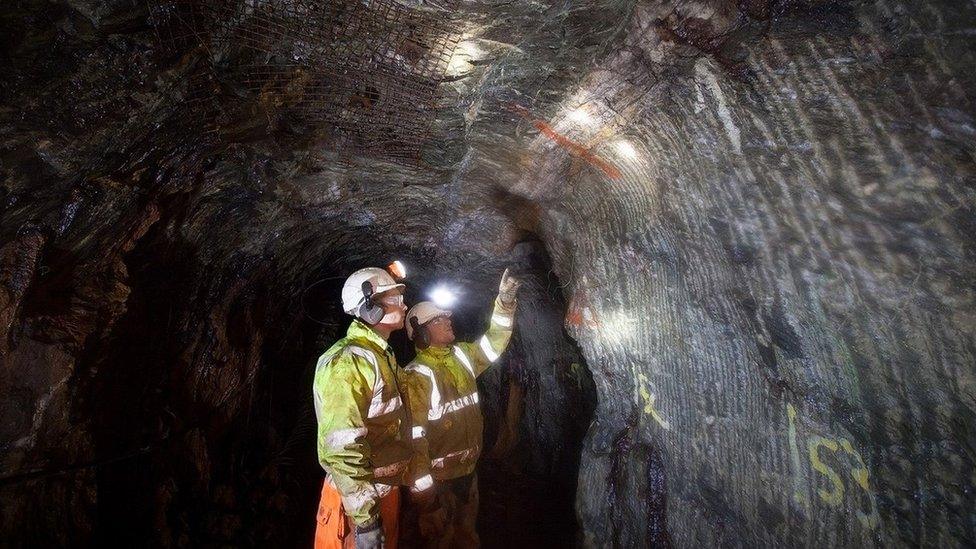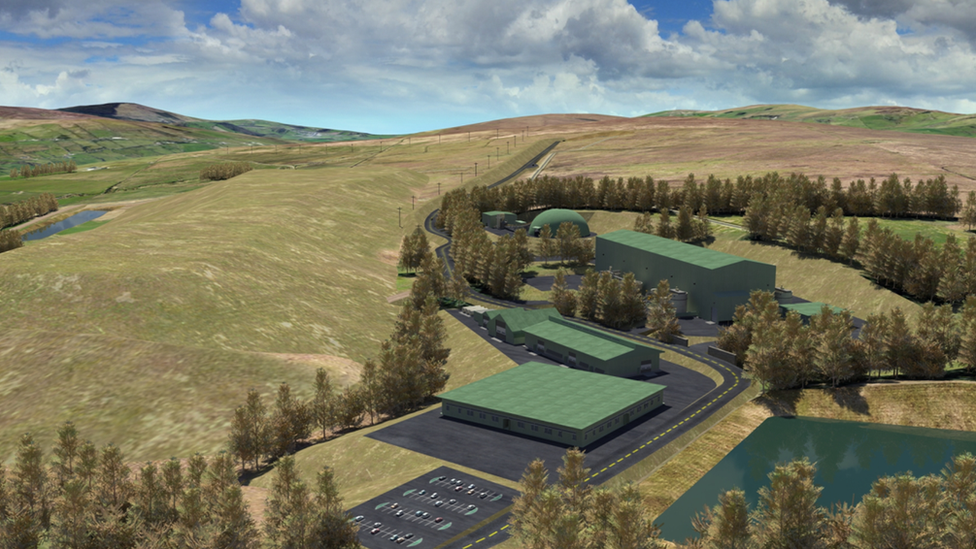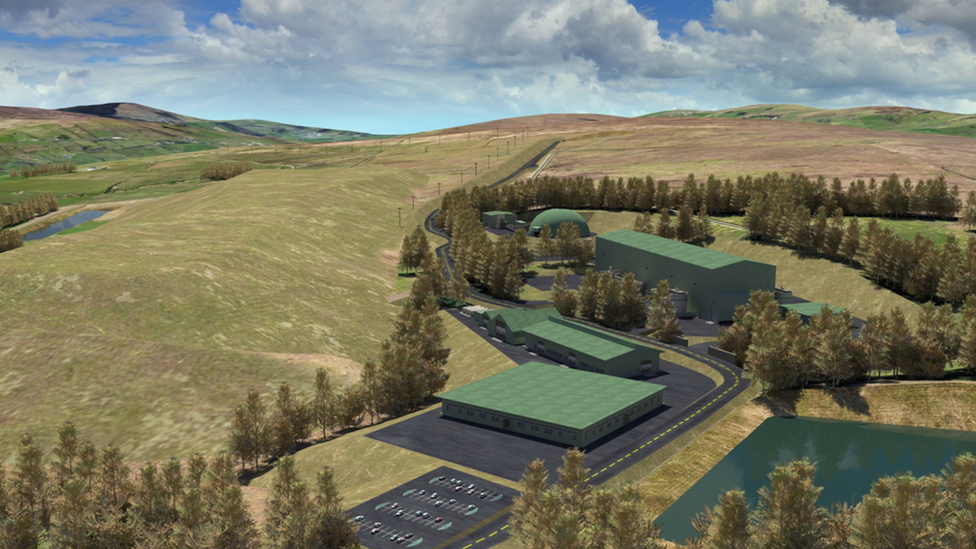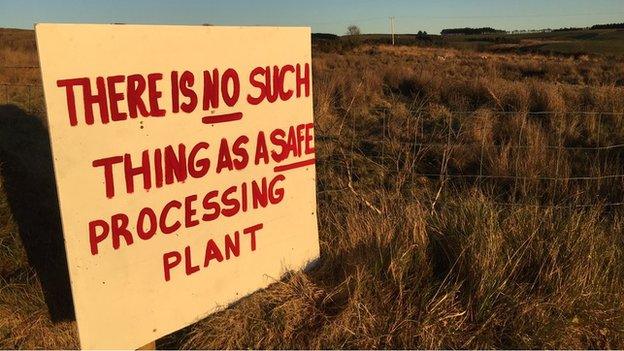Dalradian gold mine plans accepted despite 'flawed consultation'
- Published

Dalradian Gold claims there are £3bn worth of deposits in the Sperrin mountains
A government department was wrong to accept a planning application for a controversial gold mine in County Tyrone, a court has heard.
Residents from the villages of Rouskey, Greencastle and Gortin have taken the legal challenge.
Their barrister told the court there had been "significant and substantive flaws" in the requirement for community consultation.
Mining company Dalradian wants to open a gold mine in the Sperrins.
The company claims there are up to £3bn worth of deposits in the area near Greencastle.
It also said that the 25-year mine operation will create hundreds of jobs and provide a £750m boost to the Northern Ireland economy.
But campaigners have opposed the proposed mine, raising concerns about the use of cyanide in the extraction process.
They also object to the plan to dispose of large quantities of crushed rock by contouring it to the landscape and over-planting with vegetation.
'Inadequate consultation'
Since the £125m mine is considered to be "regionally significant", the planning decision will be taken by a future infrastructure minister.
Before accepting the application, the department had a responsibility to ensure there was adequate community consultation with people in the area of the proposed development.
Campaigners say that was not done.

Dalradian says there are designing a safe project, meeting and exceeding all regulations
Their barrister told the court the planning application was huge and complex, running to 10,000 pages.
Gregory Jones QC said information on the area of development - a total of 997 hectares with 144 of that being surface development - was unavailable to people during the consultation.
He said it was essential that the information made available during the community consultation closely mirrored the detail of the eventual planning application in order to ensure that the consultation was "meaningful".
Mr Jones said that, as a result of the flaws in the consultation process, the department had "erred" when it decided to accept the application for consideration.
He said while the authorities had indicated that there would be a public inquiry before a final decision in the planning application that did not mean the rules on community consultation should be applied any less rigorously.
He said that would be a "perverse outcome" adding that with controversial and complex cases it was even more important that the rules were followed every step of the way.
The case continues.
- Published27 November 2017

- Published8 December 2016
